The International (Virtual) Jet Set!
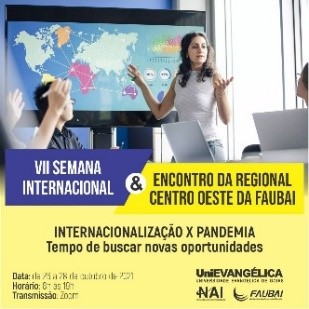
Andrew Preshous is an Assistant Professor in Academic English and recently ran a COIL project for Brazilian students and a cohort of international students from Coventry University. The project aims were for participants to exchange information about academic life and their own cultures. He writes:
Last week I was lucky enough to be in Anápolis, Brazil on Tuesday and New York on Friday. But only virtually, of course. Luiz (our Brazilian partner), Federica (my CU colleague) and I were attending events beamed remotely from those two locations and giving presentations about our COIL (Collaborative Online International Learning) project: ‘Different continents, common ground? Perspectives on university and cultural experiences and decolonizing the curriculum’. It may have been Independent Learning Week for some, half-term for others but with on-campus and online teaching thrown into the mix and a mediator role in another virtual exchange session on Wednesday with Vietnamese teachers (VIVEXELT2) and MA in ELTAL students, it was a busy week.
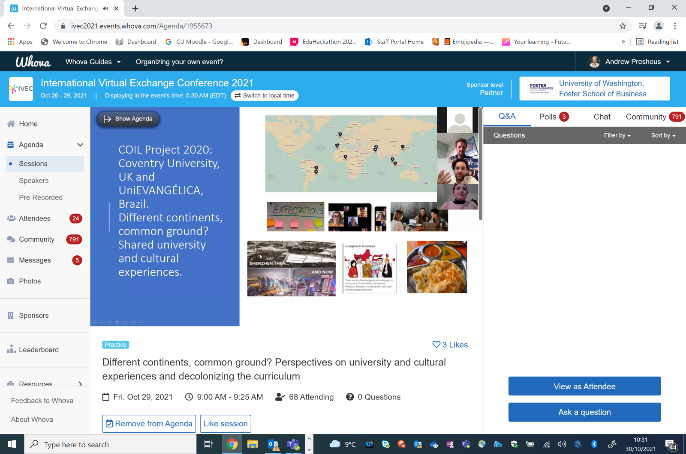
Our COIL collaboration involved Brazilian students from UniEvangelica in Anápolis and a cohort from an Academic English HUM module doing an International Business Top-Up course. Luiz had invited us to speak at his institution’s 7th International Week so at 11.30am local time (3.30pm in the UK) we joined the event via Zoom. There were about 40 people already present and the discussion was in Portuguese – yikes! Despite this initial jolt, I quickly realised that it was hardly surprising to hear the official language of Brazil being spoken. I was just hoping that we weren’t expected to deliver our talk in Portuguese – I could probably manage a ‘Bom Dia’, perhaps throw in an ‘obrigado’ at the end, but other than that, my contribution would be minimal. Thankfully, Luiz soon confirmed that the language would switch to English for our talk. Phew. I experienced a second minor shock just as I introduced myself, when I remembered that my online backdrop was a poster of France ’98. This had not been a successful World Cup for Brazil or for their star player, Ronaldo (the original Brazilian version) as they lost 3-0 in the final. As our COIL project focussed on raising intercultural awareness, had I not just scored an intercultural own goal? I decided to come clean, make light of it and mumbled something about Brazil having won plenty of other trophies. I think I just about got away with it.
We’d been given an hour time slot so had plenty of time to describe the project and to discuss the positive interactions between the students who had collaborated to exchange their experiences of academic life on different continents. The UK-based participants studying in Coventry came from a variety of countries including Indonesia, China, Nigeria, Malaysia, Pakistan and Morocco, and they shared information about different aspects of their own cultures. Somewhat inevitably, food emerged as a popular topic in the early interactions.
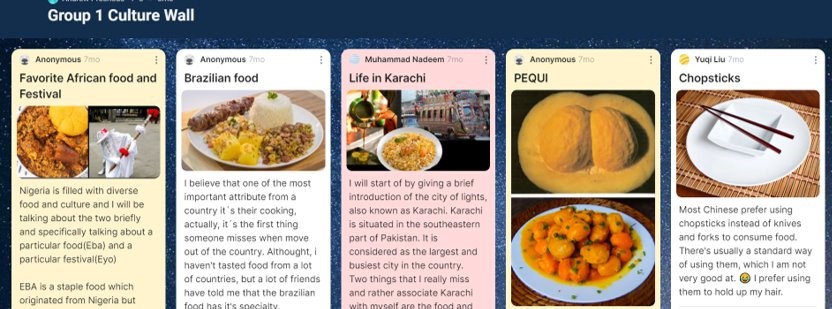
Most of the groups actively engaged with their overseas peers and produced some visually impressive work (showcased and well-received at the CU 2021 Degree Show) and perhaps more importantly, struck up good friendships. In the talk, we described how the final topic of the project, Decolonising the Curriculum, had enabled the students to begin to explore this theme by sharing comments on the origins of their names, external influences on cuisine in their native country and streets named after people in their home town. We showed samples of positive student feedback about the project; one participant had gained ‘more insight about culture in places I didn’t know much about before………………… I learned to be more respectful and listen to others, people that were raised differently and also lived in a different reality from me.’ There was ample time for questions and discussion, with one Brazilian delegate expressing her desire to come to the UK to visit her cousin and practise her English. Sign her up for one of our courses! After the talk we headed into Anápolis to a local bar to sip caipirinhas and listen to the mellow sounds of Tropicalia. In our dreams. Nope, in real life it was a cup of tea and more admin.
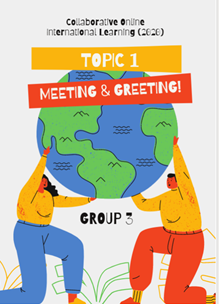
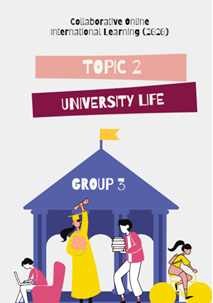
From South America it was up north to New York to IVEC (International Virtual Exchange Conference). And here we ascended to another level of virtuality as not only was this a prestigious event in the field (sphere?), but the community space also reflected this higher plane of online capabilities. Naturally there was the usual content: the agenda, speaker profiles and details of sponsors, but you could then ‘beef up’ your profile or ‘post an ice-breaker’ to introduce yourself. You could also set up a variety of polls and initiate a Q & A related to your own session. To facilitate virtual interaction, you could gain points by doing the activities previously mentioned or by suggesting a meet-up (20,000 points), posting a question in a session (10,000 points) or by sharing an article (550+). There was even a Leader board, showing the most ‘active’ members of the community. I wouldn’t be making any appearances in the Top 10 but I did accrue a few points and was comfortable with my probable mid-table position.
We kicked off our talk at 9am in New York (2pm here, 6am in LA and Vancouver, apparently). This time we had to be tighter with our timings as we only had 20-25 minutes. Attendees contributed to our word cloud poll with posts on the key elements of COIL projects, asked questions at the end and offered constructive suggestions on how ‘Decolonising the Curriculum’ could be embedded across all the topics for a future iteration of the project. Luiz and Federica felt the talk had gone well. Now it was time to ‘add another session to my personal agenda’ – I needed the points. And after the show was over we could head over to Greenwich Village for a mooch in the second-hand record shops……..oh, dammit!
COIL projects can be rewarding, interesting experiences for students and staff alike, particularly in these travel-restricted times. And with COP26 and all that, attending virtual conferences rather than flying out to these exotic destinations at least means we are doing our bit for planet earth.
Maybe next year…?